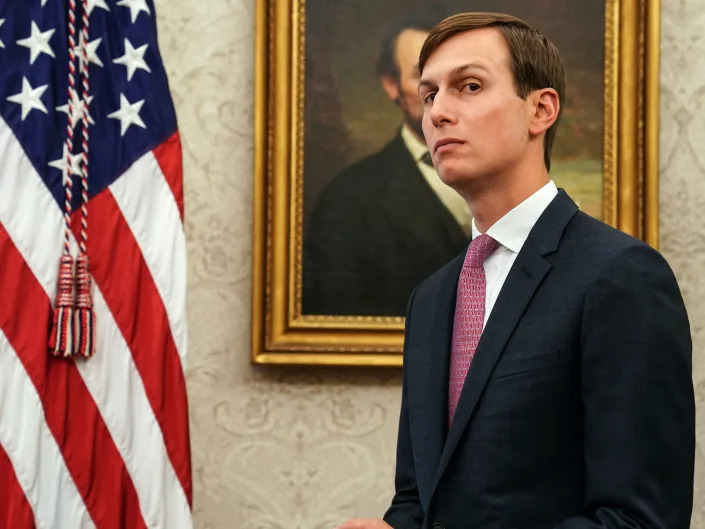Pfizer's CEO said he had a "heated" debate with Jared Kushner over COVID-19 vaccine supplies.
Albert Bourla said he told Kushner the US would have to wait its turn to get 100 million more doses.
He said Kushner disagreed, telling him the US government could "take measures" to enforce its will.
Pfizer's CEO, Albert Bourla, said in a book excerpt published by Forbes on Monday that he and Jared Kushner, former President Donald Trump's son-in-law and senior adviser, once had a "heated" debate over whether the US should receive additional COVID-19 vaccine doses first.
Bourla said he and Kushner, who in the early days of the pandemic was the head of a COVID-19 shadow task force, disagreed over the timeline to supply the additional 100 million doses of Pfizer's vaccine that the Trump administration had ordered. Bourla wrote that the conflict arose because the US was topping up on its original order of 100 million doses, but other countries had already signed contracts with Pfizer to secure their vaccine doses.
"Jared was asking for a very aggressive delivery plan to the U.S. for the additional 100 million doses. He wanted it all in the second quarter of 2021," Bourla wrote. "To do that, we would have had to take supplies from Canada, Japan, and Latin American countries, all of which had placed their orders earlier than the U.S. and were expecting the vaccine in the second quarter."
Bourla said the debate "became heated" when he refused. He said he reminded Kushner that he had made it clear to Moncef Slaoui, the chief advisor to the Trump team's vaccine-development program, that Pfizer would not take doses from other countries to give them to the US.
However, Kushner "didn't budge," Bourla said.
"In his mind, America was coming first no matter what. In my mind, fairness had to come first," Bourla wrote, adding, "He reminded me that he represented the government, and they could 'take measures' to enforce their will."
Bourla wrote that he responded to Kushner: "Be my guest, Jared. I prefer to have Japan's prime minister complaining to you about the cancellation of the Olympics rather than to me."
The CEO said the disagreement ended when Pfizer's manufacturing team told him its schedule would allow it to deliver the extra doses to the US without cutting the supply to other countries.
"Jared called me two days later from Mar-a-Lago to thank me for the collaboration, and we closed the loop on a happy note," Bourla wrote.
The US and Pfizer struck a $2 billion deal for the additional 100 million vaccine doses — enough to fully inoculate 50 million Americans — in December 2020.







